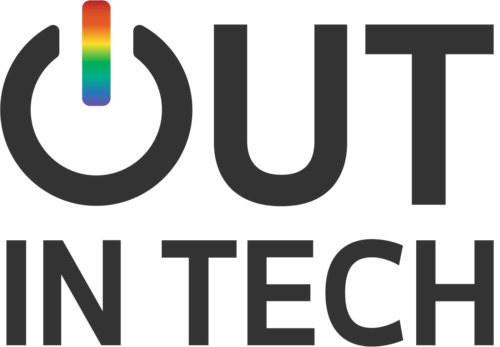Your Monthly Biz Tech Roundup from Seeto
Welcome to the July edition of Take Ctrl! ☀️ As we dive into the heart of summer, we’re excited to bring you the latest news, updates and insights. In this edition, we bring you news from the world of Google and Microsoft, take a look at what the new macOS has to offer and Seeto’s very own Co-Founder, Mark Ridley speaks of how we all really need to f*** about with generative AI.
n June, we also proudly celebrated 🌈 Pride Month. We tested our pride history knowledge with a quiz and some of the team joined the non-profit organisation Out In Tech (more info further down), attending the relaunch of the OIT London meet-up.
At Seeto, we value everyone’s authentic selves and are committed to promoting diversity and inclusion daily. Pride Month served as a powerful reminder of progress made but also the work that lies ahead and we’re dedicated to carrying on the celebration and embracing D&I in all that we do.
Need To Know
Microsoft Defender Antivirus review: Defender does the job as well as anything else ⚔️
In this review, ITPro specifically looked at the free Microsoft Defender Antivirus and associated features that come built into the Windows 10 and Windows 11 Security app.
Look out! macOS Sonoma is coming 💻
macOS Sonoma, aka macOS 14, is the latest version of macOS that was introduced at WWDC 2023 and this Life Hacker article talks all about what end-users can expect from the operating system and its best new features
Google Domains is shutting down 😱
Did you know that Google Domains is winding down and moving all its asset will be moving to Squarespace? You didn’t?! Well, we have an article that tells all.
What is Microsoft 365 Copilot and how to prepare for it 💪
Microsoft 365 Copilot is set to “turn your words into the most powerful productivity tool on the planet” – according to Jared, Modern Workspace & Business Apps team from Microsoft.
Okta Device Access is coming 💻
In June Okta announced that it’s set to launch a new offering, Okta Device Access, designed to extend the capabilities of its cloud-based identity and access management (IAM) service to enterprise desktops and other devices in hybrid work environments.
View other apps’ project data inside Google Docs 🗄️
You can now embed third-party app “smart chips” into your Google Doc after the company announced yesterday that the feature is now available for both Google Workspace users and those with personal Google accounts.
Shadow IT and the security threats it poses 🫣
Unauthorised tech use has been a thorn in IT’s side for decades, but what can be done to mitigate the risks?
Google Workspace introduces major security innovation to customers 🔑
Passwords have been crucial for computer security for over 60 years. However, in today’s ever-changing digital world, passwords alone are insufficient to safeguard valuable data for users and organisations. Introducing Passkeys, a significant security innovation for enhanced protection.
Microsoft Teams going Discord style + AI art tool 🎨
Microsoft Teams has always been a great tool and it keeps getting better. With the free/personal version, you can now create whole communities to chat about your favourite topics. Teams are also introducing Microsoft Designer, similar to DALL-E, allowing you to experiment with PowerPoint templates and very well-designed posters.
Google Workspace reminders have moved 🚚
Google Workspace is transferring reminders to the Google Tasks app, creating a unified experience for managing to-dos. This migration may temporarily impact reminder tracking for users.
Featured Service

This month we’d like to shine a spotlight 🔦 on an inspiring non-profit organisation: Out In Tech (OIT).
OIT is dedicated to empowering LGBTQ+ individuals in technology. They provide a valuable platform for networking, mentorship, and professional development, fostering a community where individuals can connect, learn, and thrive. We support organisations like OIT to create a more inclusive and diverse tech landscape.
Visit OIT for more information and upcoming events or join their Slack community at https://outintech.com/slack/.
The Seeto Take
You have to f*** around to find out (with AI) by Co-Founder, Mark Ridley
Last week I had the opportunity to speak with a number of startup CEOs, having been asked to present how generative AI would impact their businesses.
I didn’t have much prepared for the event, other than a story of how I had recently been asked to help a friend with a technical challenge. He wanted to improve a web application that he had built himself but had progressed past his comfort zone and came to me for some advice. As I’m no longer the techy I once was, I decided that I would help him write some specifications so that he would be able to successfully find a contractor to do the work.
With my audience last week, I showed them how I asked ChatGPT to help me write the specifications, which saved me a lot of time structuring the text. Then I explained that I realised that with the specifications in hand, I could get GPT to write the tests for the application. And with the tests completed, I could get GPT to write the code. Not perfect by a long shot, but it meant that after a few hours, I could go back to my friend with specifications, tests and a working prototype, all created by GPT.
I didn’t expect the response that I got from the audience – all working in tech startups. They were surprised – some amazed – that GPT had these capabilities out of the box. I was blindsided – when I asked them, no one present had any current or planned activities in their businesses to encourage their staff to play with GPT. I don’t believe that it was a lack of curiosity, but rather that not knowing where to get started, and concerns about the potential risks, were locking them into a pattern of inaction.
And that’s what I’d like you to take away from this. You shouldn’t have a team set aside to look at how generative AI is going to help your business. You should be actively encouraging your entire organisation to play around with the new generation of AI tools – large language models (LLMs) like GPT and Google’s Bard, for sure, but also offerings from Microsoft, Amazon, Adobe and almost every other major tech business.
How to go about encouraging “active play” with AI.
You shouldn’t be doing this with a carte blanche approach, of course. You should be encouraging ‘active play’ amongst all of your team members. Democratising this new technology will bring the greatest amount of inspiration to your business. There are just a few simple things to consider before you open the floodgates.
Before anything else, make sure you’ve got a simple, clear policy for using generative AI tools. At the very least your policy should make four things clear:
- You should not trust any new tool (including but not limited to AI tools) with confidential data; never put privileged company or customer information in a tool unless it has been ‘certified’ safe. Explain to people exactly how they can tell if it’s safe (maybe as simple as having a list of approved tools, like Office and Salesforce).
- You should not trust that the inputs you use are totally safe – not all of these tools are really production or enterprise ready, so my advice when you’re writing a prompt for an AI is to ask yourself “How would a customer of ours feel if this prompt was leaked”. It’s unlikely but sadly entirely possible that a new AI provider will have a security breach, and you don’t want an overly aggressive or childish prompt to damage your company’s reputation.
- You should never trust the output of an AI tool; they are prone to hallucinating incredibly compelling and believable outputs, so it’s best to limit your use to things that you can check against some verified source; for instance, if your LLM tells you that the Canadian flag has yellow in it, it’s probably worth quickly checking what colours the maple leaf really displays.
- You should always check for bias; LLMs like GPT are improving every day, but are still prone to certain types of response. Over the weekend I asked GPT to create me some fictional biographies, and every one of the personas it created was a) American, b) wealthy, c) predominantly white and d) educated at an Ivy League school. I had to consciously tune the prompt to ask for it to do a better job of representing actual society.
If you need help writing a policy, you could do worse than ask GPT itself – I did and the answer was pretty good. Alternatively, have a look around for guidance – I particularly like Sifted’s code of conduct.
Once you have created your policy, communicate with your team members that you would like them to find creative uses for AI tools in their workflows. Ask them to take time out of their working day – with the guidance of your policy – to find ways that AI can help them, and then give them the opportunity to come back and demonstrate what they’ve found. Whether that’s a specific demo, in a weekly meeting or a company all hands, inspire your team to play around and then share what they’ve found.
How does this relate to your business tech? Well, because the business tools are coming, you should already be actively looking to understand how they’re going to impact your business. If you’re a Microsoft user, Microsoft is dropping GPT-style assistance directly into Windows and Office in the form of Microsoft Copilot. Google is doing the same, launching Duet into Google Workspace. Salesforce in the last two weeks has announced GPT in every part of their stack, from Sales Cloud to Service Cloud to Slack GPT. Notion is touting the assistive capabilities of its Notion AI product. Adobe’s Firefly is available directly in Photoshop and numerous companies are providing free training (including Microsoft via LinkedIn).
GPT isn’t just limited to chatbots that write amusing limericks. Within months either GPT or an LLM similar to it is going to be directly available within the tools you use today, and the best way to understand how they will benefit your business isn’t to read another article about AI but to encourage all of you team members to get involved and try it for themselves.
I’m deliberately not giving you advice on what you can use these tools to do, or how to use them. As Tiktok sensation Roger Skaer said a few months ago, You’ve got to f*** around to find out. Go find out.
Recent OS Updates
Last updated 5 August 2024
Windows
Microsoft currently supports Windows 10 and Windows 11.
- Windows 10 version 22H2 (10.0.19045)
- Windows 11 version 22H2 (10.0.22621) and version 23H2 (10.0.22631)
macOS
Apple officially supports the following Mac operating systems:
- macOS Sonoma 14.6
- macOS Ventura 13.6.8
- macOS Monterey 12.7.6
iOS and iPadOS
The supported iPhone and iPad operating systems are:
- iOS 17.6
- iPadOS 17.6
Android
Google supports the following Android operating systems:
- Android 14
- Android 13
- Android 12
Note that your device manufacturer may not support every version that Google produces security fixes for.
Learn how to check and update your Android version here.

